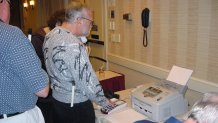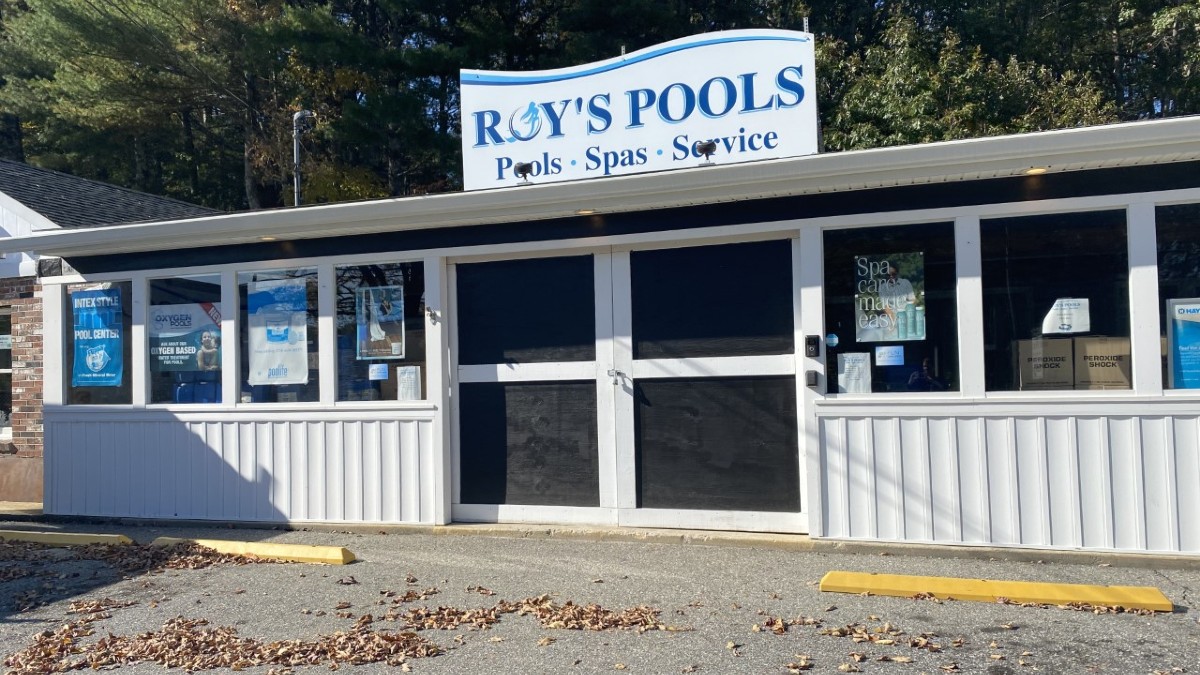Across the country and inside the state, the coronavirus has changed our daily lives from our routines for work to our home life.
The introduction of wearing masks and shopping restrictions at stores have posted a challenge for everyone including those who are differently-abled.
Nathanael Wales is blind and, like many Americans, is working through the challenges of living through a pandemic.
"My family and I have been spending a lot more time at home and working at home just like those around our community," said Wales.
Wales and loved ones have had to use other measures to get to the grocery stores like Uber.
"The trains are running a lot less often that impacts everyone," said Wales. "We have been fortunate to utilize some of the pick-up options at Stop and Shop and other various grocery stores."
The health crisis is causing issues for those who are deaf, too.
Local
"The biggest issue facing the deaf community is the mask; we need to see the whole face to get the expressions," said Luisa Gasco- Soboleski, president of the Connecticut Association of the Deaf. "I face problems at the grocery store and the drive-thru to pick up food."
According to Soboleski, many members of the deaf community are avid lip readers but masks can serve as a barrier. She did mention that she's appreciative that the governor has an interpreter available during his daily briefings.
The National Federation of the Blind told NBC Connecticut that college students who are blind have had issues with online learning.
"We're expected to do everything remotely and that's not always possible for blind people," said Chris Danielsen, director of public affairs for the National Federation of the Blind. "It's going to take a lot of two-way communication and cooperation on the part of the general public.
The NFB is also calling for states to do more for the differently-abled community when it comes to voting.

"Voting is the single biggest issue that those who are blind face as states being to reopen," said Wales. "The big thing that we are concerned about is that our voices are able to be heard."
The Connecticut chapter of the NFB said they are calling on the secretary of the state to do provide more options to keep voters safe.
"We don't want to risk our health or poll workers' health when we're exercising our right to vote," said Wales.
The organization mentioned that other states have been working to implement systems to help those who are blind.
"They can use an online system to fill out a ballot or either print the ballots on their home computer and put it in the postage pre-paid envelope," said Wales.
We reached out to the Secretary of the State's Office and they released this statement:
"Our office is working hard to ensure that every voter can vote in the method that is best for the voter. This includes polling places being open and with accessible voting machines (IVR) available, investing a significant amount of federal funding in providing polling places with PPEs and cleaning supplies to provide a safe environment for voters and poll workers alike, and making sure that absentee ballots are available for voters who want them. As always, according to Connecticut law, voters who vote by absentee ballot can have someone they trust to fill out the application and/or the absentee ballot for them if they choose, so long as the person who fills out the application or ballot for the voters signs the form or the inner envelope acknowledging that they assisted."
The organization and advocates are asking the state to do more as they continue to live during the pandemic.
"There really has to be an accessible system for everyone right now," said Danielsen. "Right now there is a federal law that requires all jurisdiction to have accessible voting machines but not all jurisdictions have accessible absentee ballot marking solutions."



